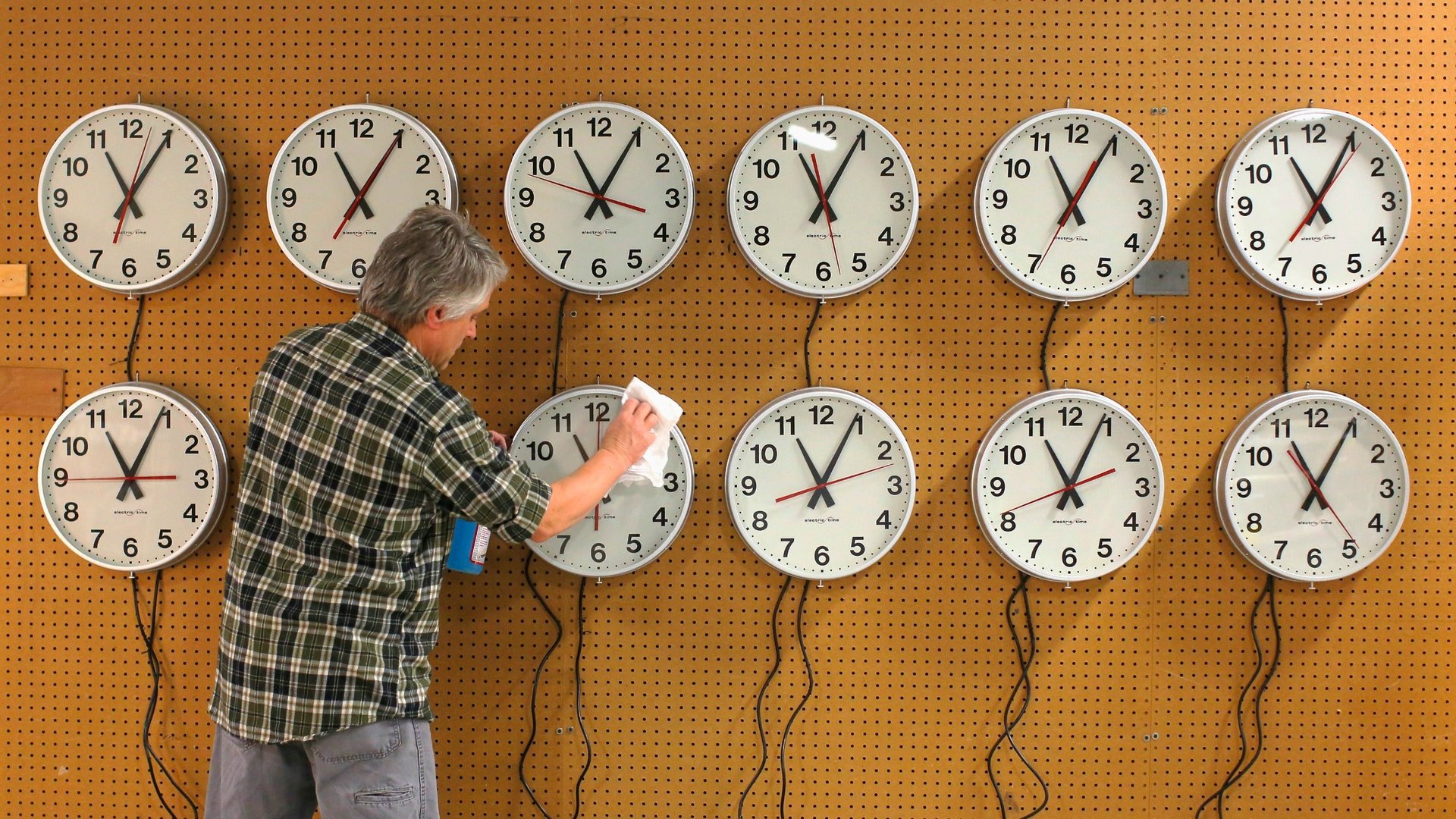Five more reasons to kill daylight saving time
Quartz has been inundated with responses (and some hate mail) to my piece yesterday about getting rid of daylight saving time in the US and putting the country on two zones, one hour apart. There were some trends among the questions, most of which only embolden my view. Key takeaways:


Quartz has been inundated with responses (and some hate mail) to my piece yesterday about getting rid of daylight saving time in the US and putting the country on two zones, one hour apart. There were some trends among the questions, most of which only embolden my view. Key takeaways:
What about living in darkness?
Many people were concerned about losing daylight and being further out of sync with solar time (when the sun is at its zenith at noon). This may increase rates of depression from less sun exposure. This is especially true in New England with its very long nights. And this may be especially worrying now that more people bike to work. But we already live in darkness. The demands of work and increased economic integration with other time zones has already removed us from solar time. Interesting research from the University of Texas showed that Americans are more likely to set their schedules with television viewing—not the sun.
Travel will be better this time of year
A pilot writes that the time changes cause big headaches for the airlines. To complicate matters, not all states participate and different countries change their clocks on different days. This causes many scheduling issues and congestion for the airlines each year. In fact, a complete lack of coordination was what inspired Congress to pass the Uniform Time Act of 1966 in the first place.
Is this just coastal elitism?
Another commenter felt the fly-over states were being punished to accommodate people on the coast. But really the opposite is true. People on central and Rocky Mountain time keep their current time and longer days. The east coast goes on central time and the west on Rocky Mountain time.
What about the children?
It is true that some children, especially on the west coast, will arrive at school in the dark. But a high school teacher writes that most of his students would prefer more daylight at the end of the day when they are done with class and playing sports.
How can we make this happen?
It will require Congress to change the time zones and get rid of daylight saving time. The last time time was changed in 2005 with the Energy Policy Act, which extended daylight saving. It was speculated that the time was changed due to lobbying from the sugar industry wanting to extend daylight for Halloween trick-or-treaters. Since 1966, Congress has changed aspects of daylight saving five times (three times in the 1970s!). So how do we force Congress to look anew? We can start a petition and write our congressional representatives. Here’s one lobbying president Barack Obama to take up the cause, too.